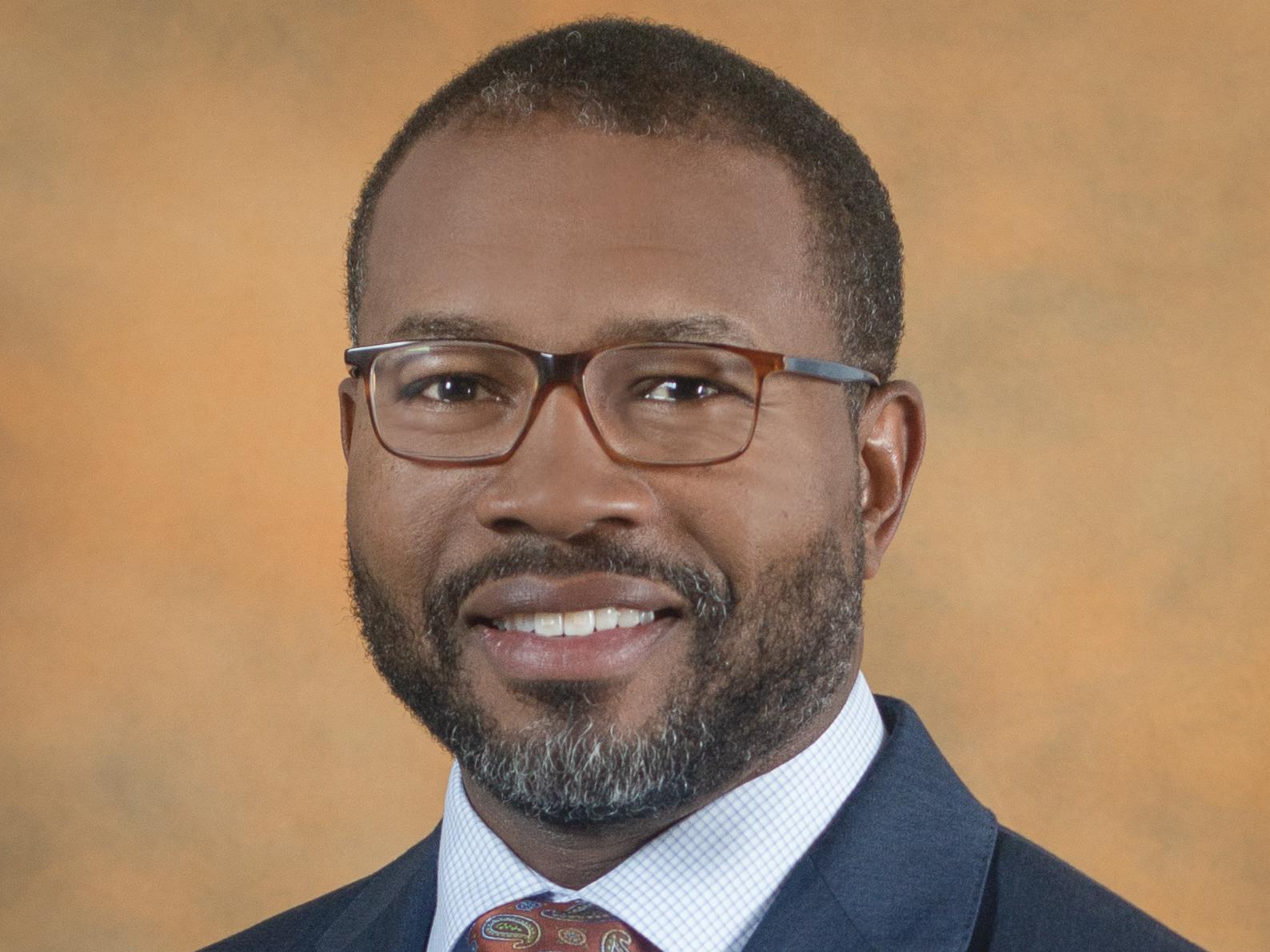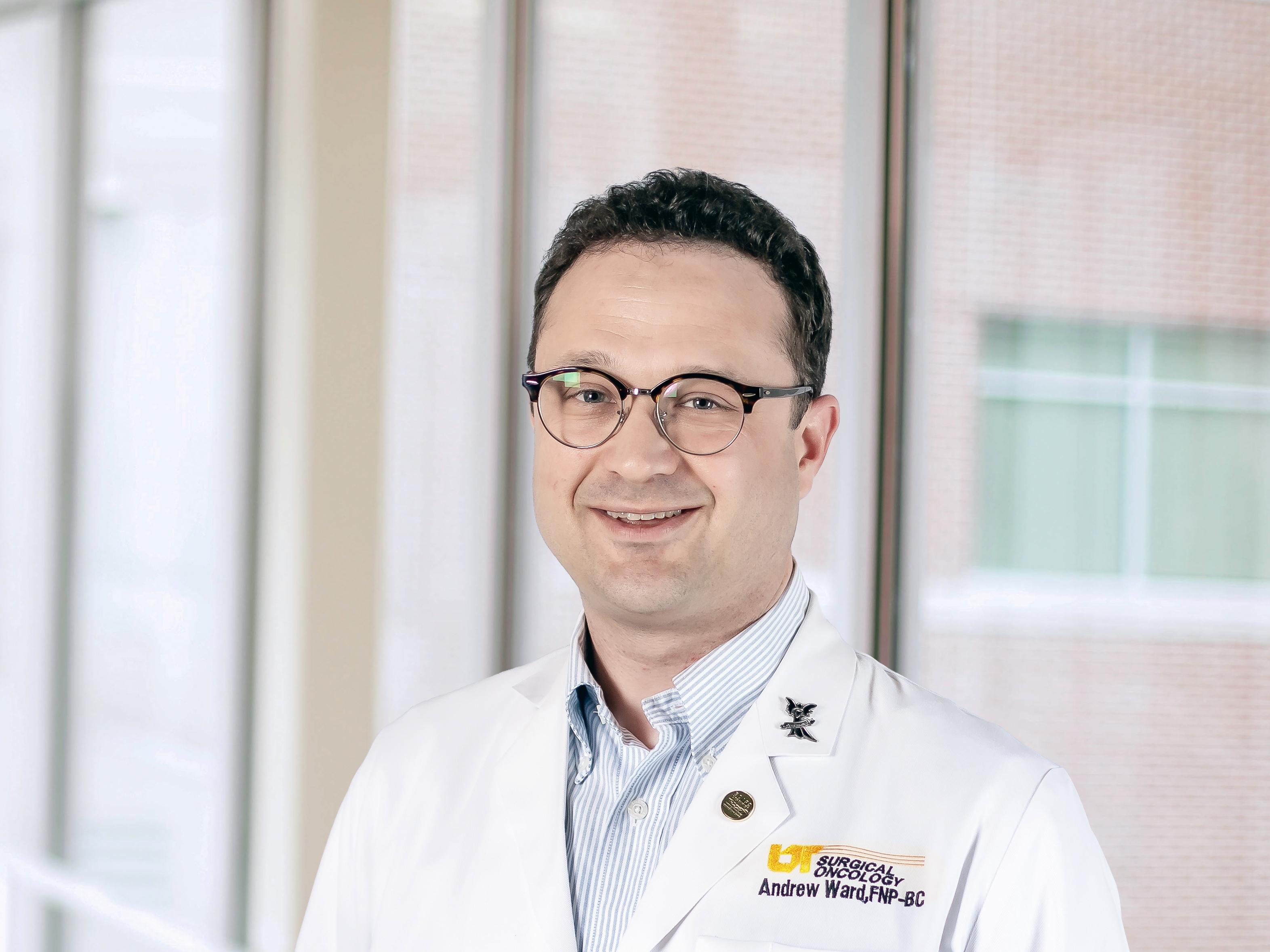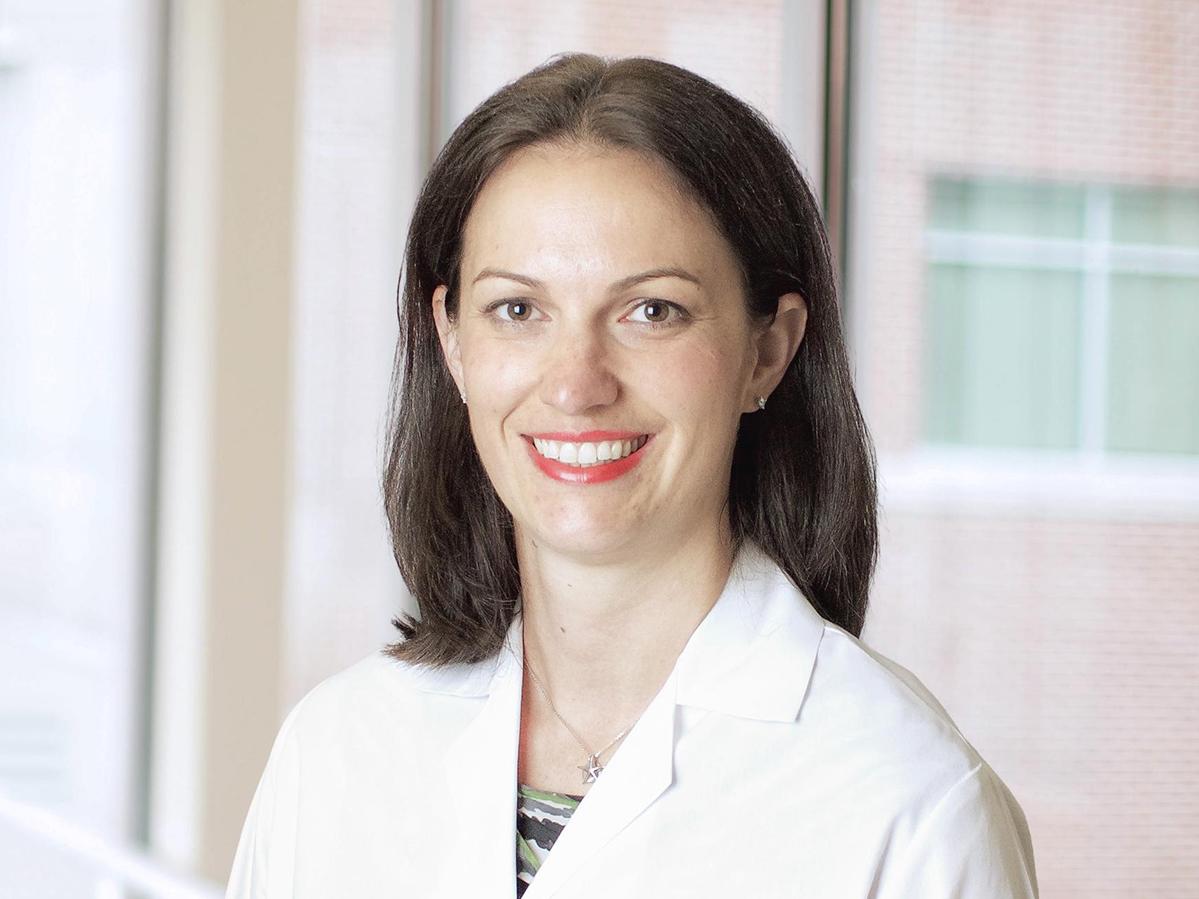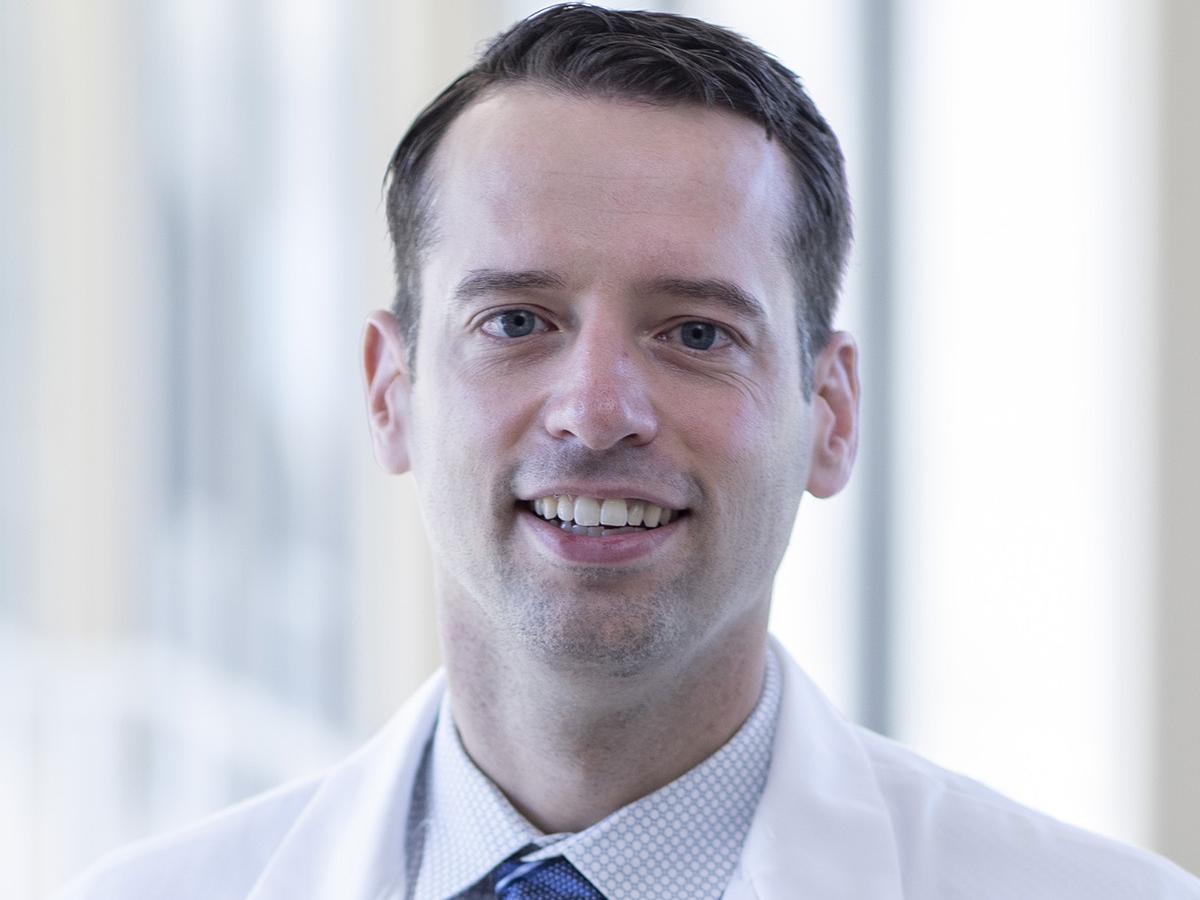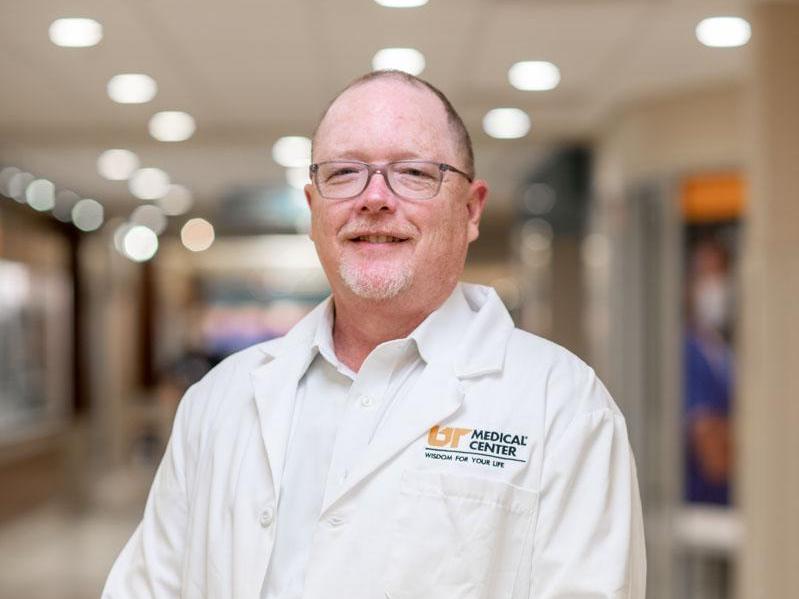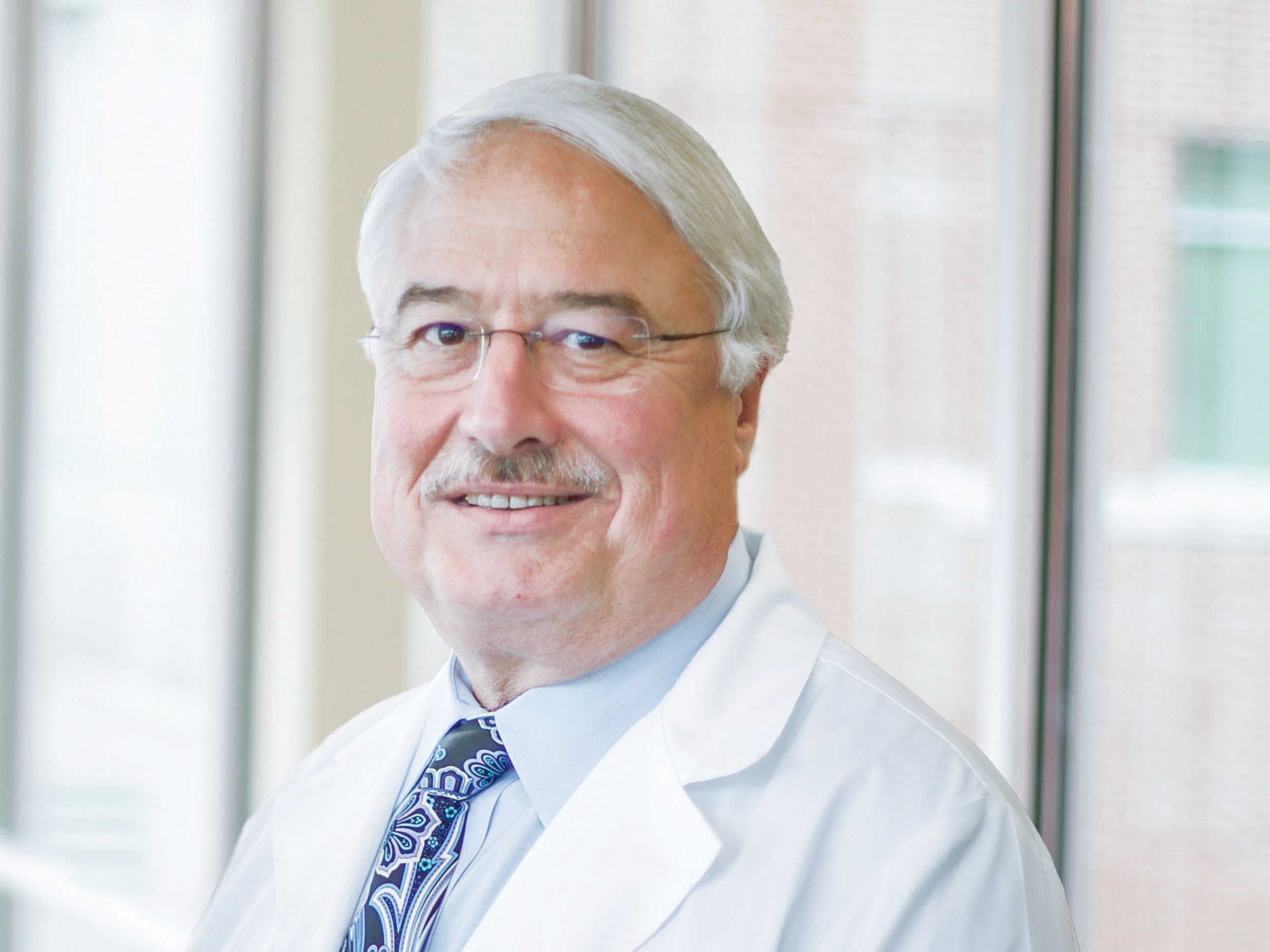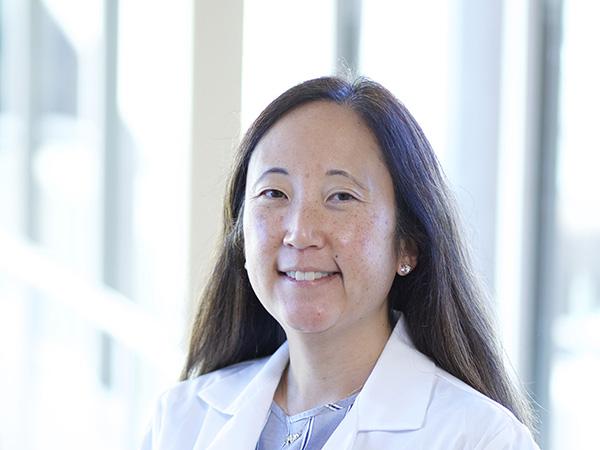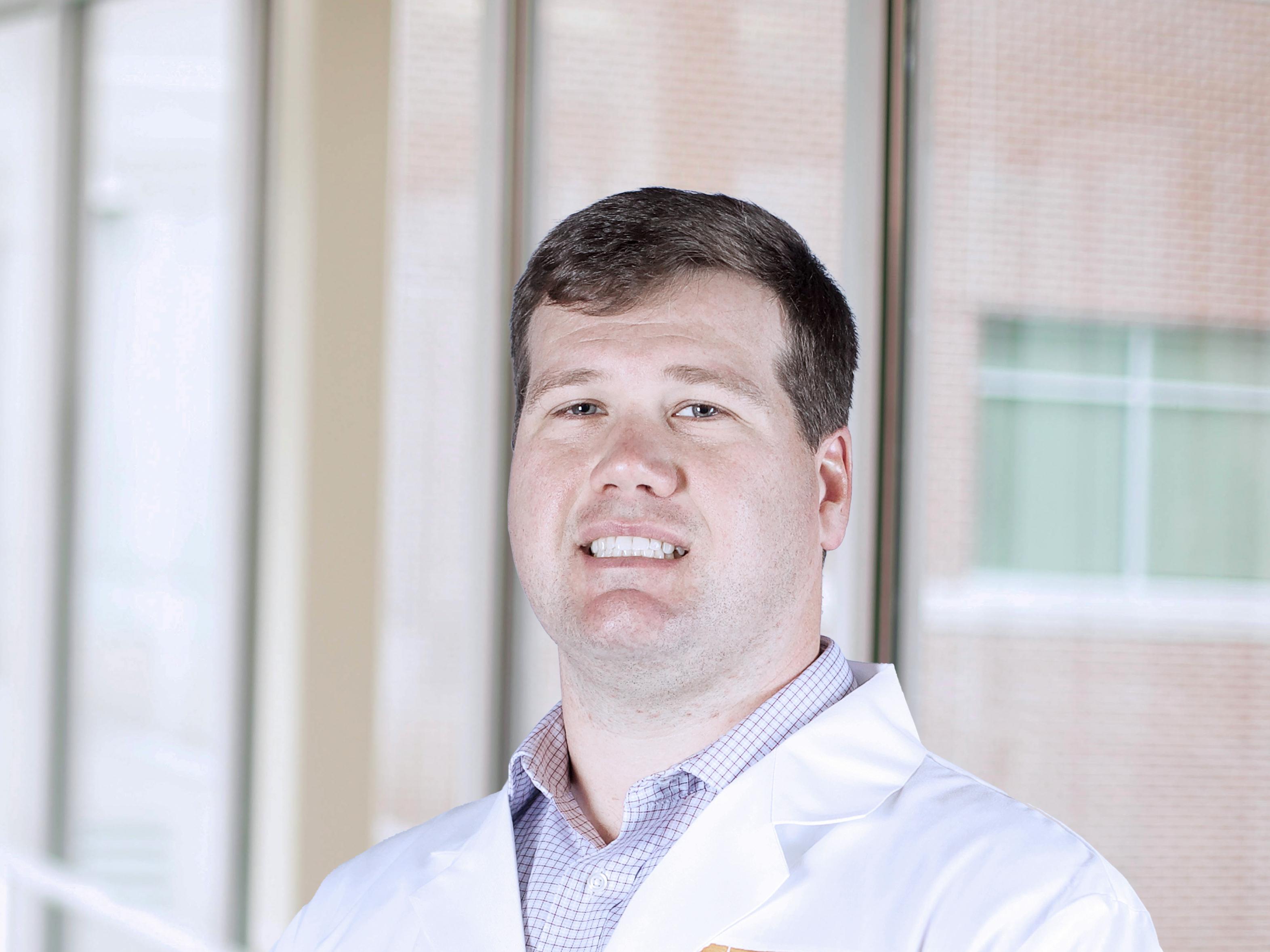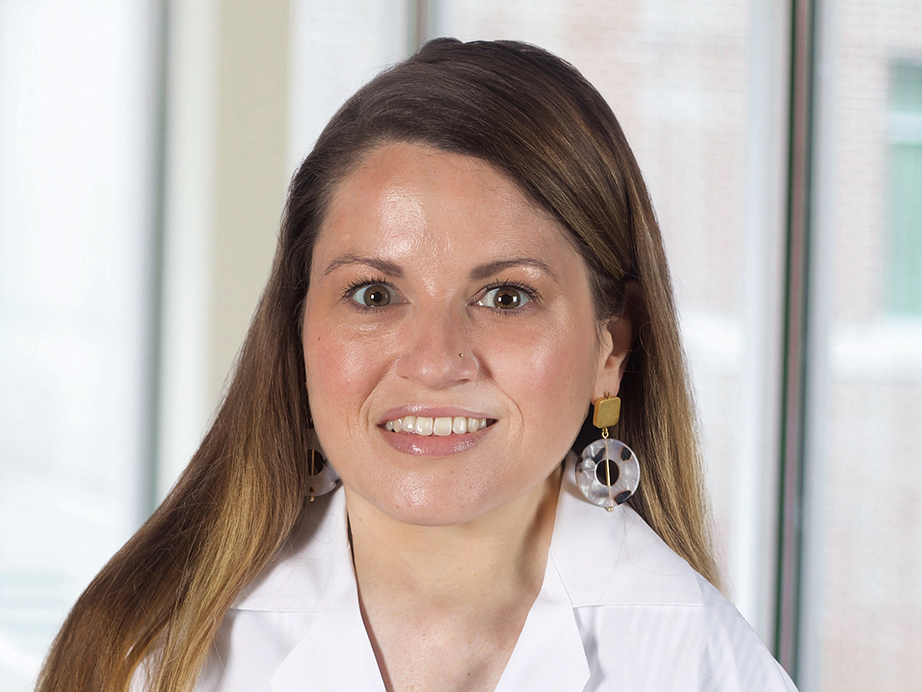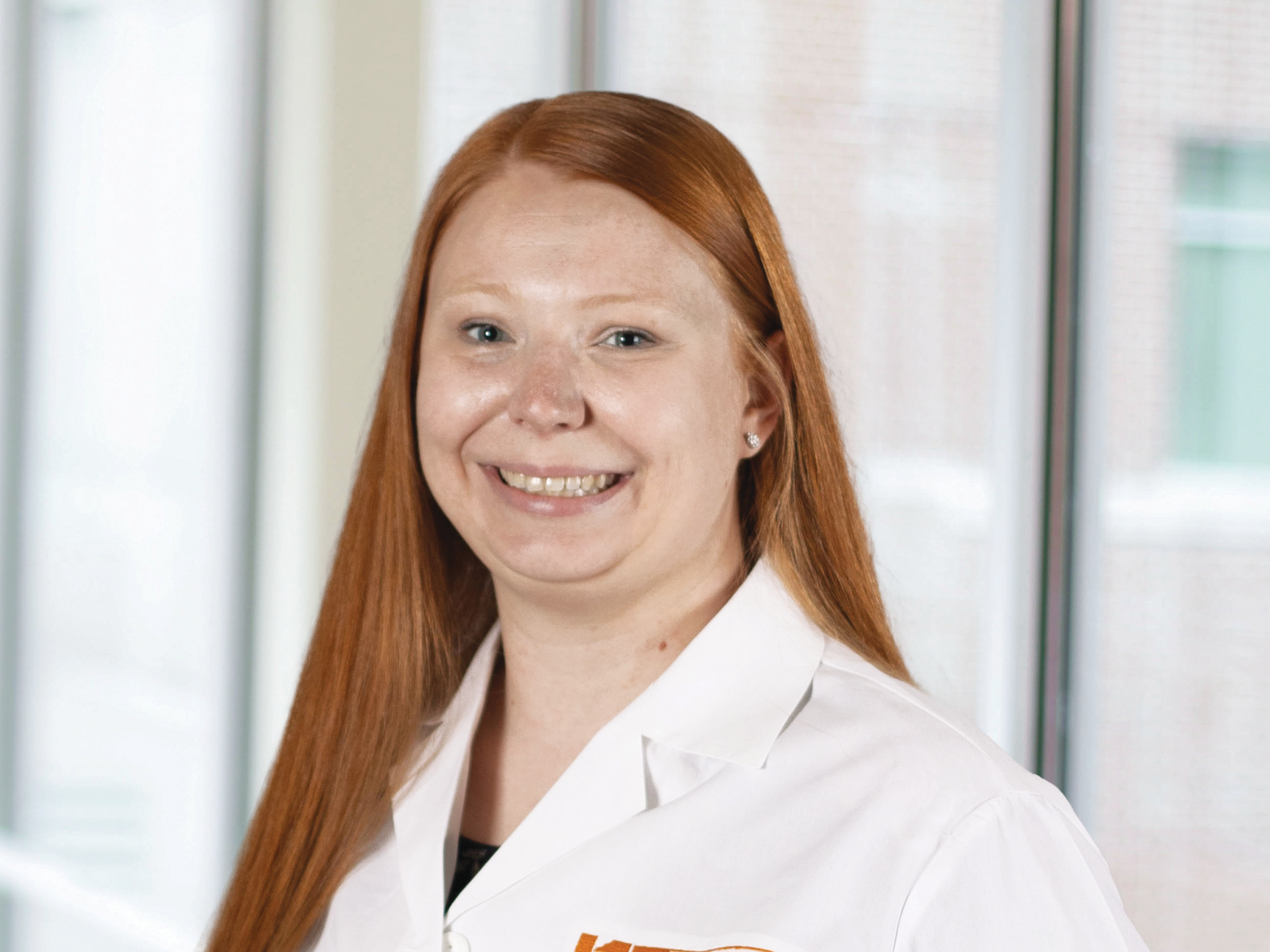Overview
The board certified, fellowship-trained surgical oncologists of University Surgical Oncology, part of The University of Tennessee Medical Center’s Cancer Institute, work closely with a team of physicians at the Cancer Institute including medical oncologists, radiation oncologists, pathologists, radiologists, plastic/reconstructive surgeons, genetic counselors, oncology nurse navigators and social workers to develop individualized cancer treatment plans.
Our Services
Patients treated by the surgical oncologists benefit from discussion of their treatment plans in multdisciplinary conferences and from innovative treatment procedures not available elsewhere in the region or state.
- Fine needle aspiration of tumors for rapid diagnosis
- Heated Intraperotineal Chemotherapy
- Hepatic arterial infusion pumps
- Isolated Limb Infusion
- Laparoscopic treatment and staging of cancer
- Lymphoscintigraphy and lymphatic mapping for breast cancer and melanoma
- Minimally Invasive surgery
- Radiofrequency and microwave ablation of liver tumors
What Sets Us Apart
We provide:
- Board certified, fellowship-trained surgical oncologists
- Cutting-edge technology and treatment options
- Comprehensive, coordinated and compassionate multi-disciplinary team approach to oncology care
- Superior service to our patients in an academic setting
- Surgeons specializing in procedures not performed elsewhere in the region
Surgical Oncologists
A surgical oncologist is a physician who completes training in general surgery (5-6 years) and then furthers their training by completing a fellowship (1-2 years) specifically in the surgical management of cancer patients. Research has shown that outcomes in surgical caner care are positively associated to the number of cases a surgeon performs. This is particularly true of complex cancer resections of the pancreas, esophagus, stomach, liver and others.
The surgical oncologists at the University of Tennessee Medical Center participate in the multidisciplinary care of cancer patients and collaborates with many different specialties to develop individualized treatment plans that research has also shown to improve the quality of cancer care. The surgical oncology team specializes in the cancers listed below, as well as other rare tumors. They offer cutting edge treatments some that are not available in the region or state.


